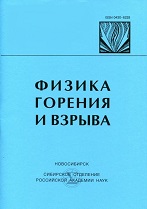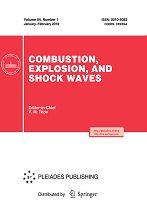|
This article is cited in 8 scientific papers (total in 8 papers)
Effects of octane number on autoignition and knocking phenomena in a stratified mixture
T. Ihara, T. Tanaka, K. Wakai
Faculty of Engineering, Gifu University, 1-1 Yanagido, Gifu, Japan
Abstract:
The effects of the fuel concentration gradient and the octane number on the autoignition and knocking phenomena in a stratified mixture were studied experimentally on a using a rapid compression machine using stratified mixtures of air and fuels $n$-heptane, iso-octane, $n$-hexane, and $n$-pentane with different octane numbers (0, 100, 25, and 62, respectively). In the chamber, the lower the vertical location, the richer the fuel concentration of the mixture. The mixture contains no gradient in the horizontal direction. The experimental results show that rapid spread of the flame is caused not by flame propagation but by sequential autoignition. Although ignition delays of a stratified mixture are not dependent on the fuel concentration gradient in the mixture, they are constant as long as mean equivalence ratio is the same, and they decrease with the decreasing mean equivalence ratio. In excess of certain gradient value, the knock intensity is smaller as the gradient becomes larger for all fuels tested regardless of their octane number.
Keywords:
combustion engine, autoignition, knock intensity, ignition delay, octane number, stratified mixture.
Received: 25.10.2008
Citation:
T. Ihara, T. Tanaka, K. Wakai, “Effects of octane number on autoignition and knocking phenomena in a stratified mixture”, Fizika Goreniya i Vzryva, 45:4 (2009), 93–100; Combustion, Explosion and Shock Waves, 45:4 (2009), 428–434
Linking options:
https://www.mathnet.ru/eng/fgv1320 https://www.mathnet.ru/eng/fgv/v45/i4/p93
|


|





 Contact us:
Contact us: Terms of Use
Terms of Use
 Registration to the website
Registration to the website Logotypes
Logotypes








 Citation in format
Citation in format 
